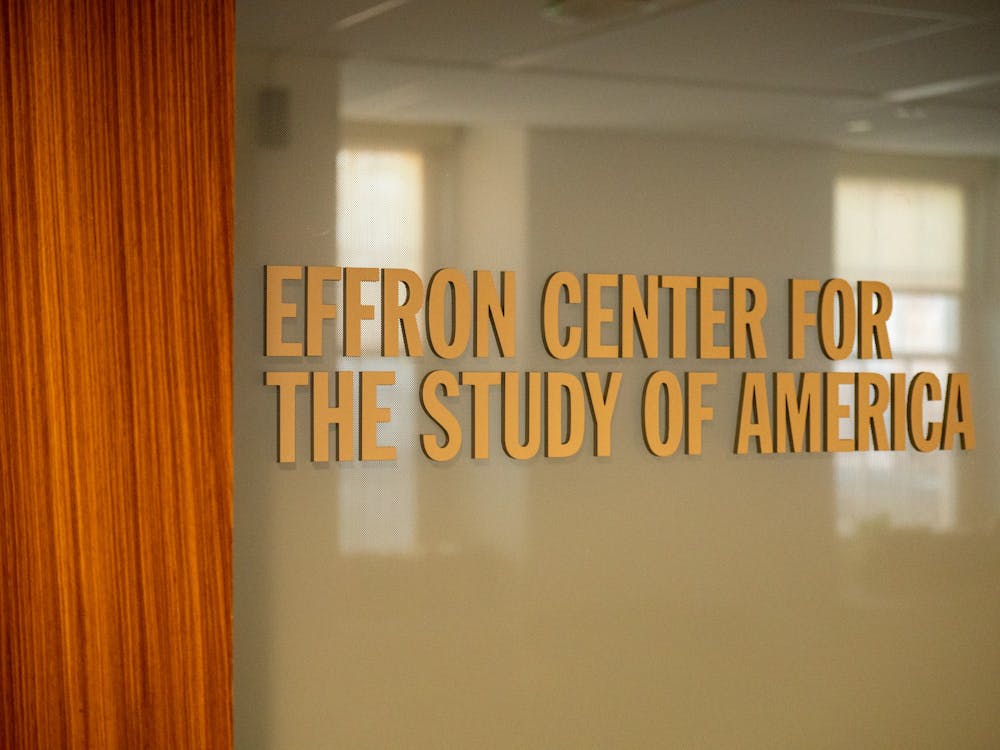If it had been a basketball game, both teams probably would have been slapped with a technical foul. Wednesday night's Whig-Clio debate had everything – cheering, shouting, cursing and even the furious pounding of chair arms. The rowdy crowd listened to the debate titled, "The University should combat grade inflation."
The Clio team resolved that the University should not combat grade inflation and was represented by USG president David Ascher '99 and USG academics chair Todd Rich '00. The Whig debaters, Christina Morris '98 and Eric Reicher '00, supported the resolve.
The debate focused on determining where exactly grade inflation exists at Princeton. Because the report released by the Faculty Committee on Examinations and Standings is divided by academic departments, not by discipline, Whig-Clio member Amanda Teo '99 stressed the need to address each academic area individually.
She added that the separation is needed to avoid having "grad students and professors lower grades all across the board."
Team USG
To debate against the resolve, the USG officers offered several possible explanations for the grade increase including higher selectivity, a better teaching staff and a stronger student body.
In addition, they speculated about the repercussions of a grade deflation policy. "We don't want to foster an environment of competition," Ascher said. "There is no clear benefit in descaling grades," he added.
Using a small poster graphic, Ascher addressed the issue of grading on a bell curve as "an artificial way of distinguishing students."
Whig arguments
The Whig team focused on the University's responsibility to take the lead in combating grade inflation.
On the issue of admission to graduate schools and employment positions, Reicher said that an inflated GPA may do students more harm than good.
"You do get a distinction when you graduate from Princeton. They give you a bump, but if they think that Princeton is already giving us a bump, we lose that distinction," Reicher said.
New York Times
The recent New York Times article was a point of contention for several students. Rich said the article was unfair because it "singled-out Princeton, even though we're in line with other peer institutions."
The Whig party speaker, John Williams '99 said the University had to take the lead in fighting grade inflation, similar to the lead they took in financial aid.

In the end, the resolve passed by a vote of 17-15, deciding that the University should combat grade inflation.







